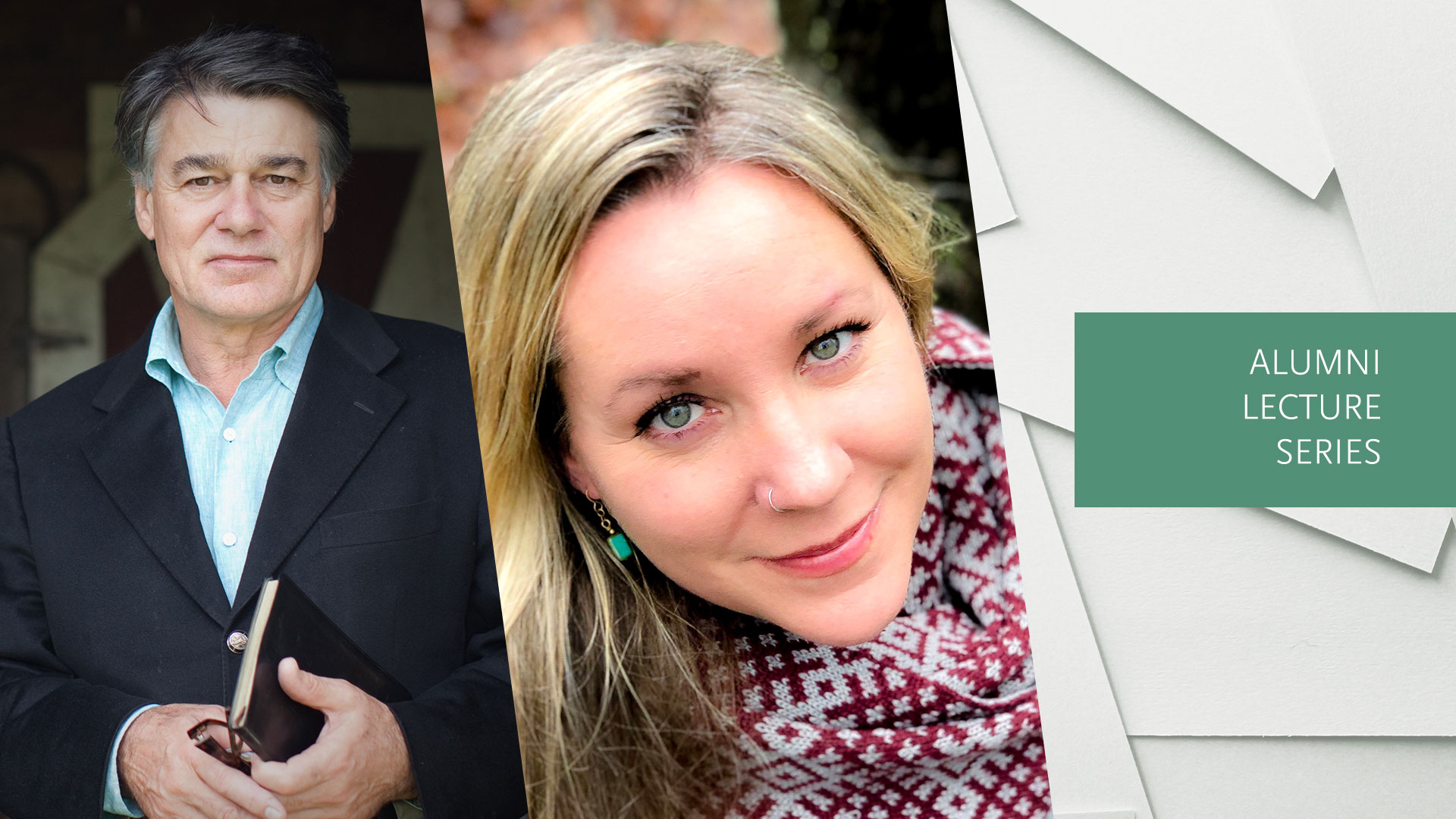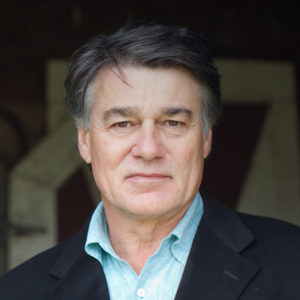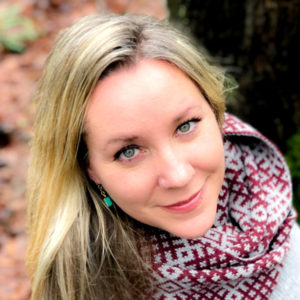The Practice & Poetry of Listening in Place:
A Workshop with David Whyte and Mary DeJong

Registration for the workshop is closed. Tickets for the evening lecture are still available.
The Seattle School of Theology & Psychology is pleased to welcome renowned author, theologian, and wilderness mystic David Whyte for our 2018 Alumni Lecture Series. Whyte is a world-renowned poet whose work weaves together a surprising and thoughtful spirituality, grounded in the landscape and history of the places he has called home.
This year’s event, on Saturday, March 3, will include an afternoon workshop, “The Practice and Poetry of Listening in Place,” followed by an evening presentation, “The Pilgrim Way: Taking the Path of Risk and Revelation.”
Each year during the Alumni Lecture Series, the featured guest co-leads a portion of the event with an alumnus of The Seattle School. This year, David Whyte will be joined by Mary DeJong (MA in Theology & Culture, 2017) to facilitate the afternoon workshop. David and Mary will invite conversation about listening deeply to the places that create our homescapes and bioregions. The interactive workshop will explore how learning the stories of the land around us can create an imagination for how to mutually belong within these places.
This practice of listening is a ritual that connects us to the great belonging within the community of creation, and also invites the Spirit to break in afresh, posturing us toward possibilities of a flourishing future. These are acts of remembrance and re-membering, practices that remind us of our interrelationship with the more-than-human world and bring us back into membership within this assembly.
The practice of listening in place will ultimately draw forth sorrow and lament, especially when we begin to attune to the silence of the beings that are no longer there. How do we respond when the natural world no longer functions with resilience, when the bird’s song is still and the forests no longer refresh after the fires? Where is the habitat of hope when the ice melts, the seas rise, and the forests burn? Can we find it in the silence? Will the still small voice call from within the wilderness, calling us to lean deeper into the silence and there find our true belonging?
Later, David will lead an evening session in which he will look at the great questions of human life through the eyes of the pilgrim. Learn more and register for “The Pilgrim Way: Taking the Path of Risk and Revelation.”
Workshop attendees receive free admission to the evening session.

David Whyte is a world-renowned poet whose work weaves together a spirituality that is grounded in the landscape and history of his English and Irish homeland as well as the Pacific Northwest, where he currently lives. His collections of poetry include Songs for Coming Home, Where Many Rivers Meet, The House of Belonging, and Pilgrim. Whyte has also authored works of prose that explore how poetry in organizational and business settings might foster creativity and engagement, and he has developed a series of seminars focused on the conversational nature of leadership in today’s world. This eclectic melding of poetry, spirituality, ecology and even business—though famously difficult to categorize—has resonated with a growing number of people across the world, and Whyte is often now spoken of in the same breath as other major contemporary, Irish American and English poets.

Mary DeJong is an urban naturalist and eco theologian who writes and speaks on sacred ecology, theology of place, Celtic Christianity, and pilgrimage. Through her organization, Waymarkers, Mary leads regional and international pilgrimages to help travelers connect faith with the natural world. She lives in Seattle.
About the Alumni Lecture Series
Established by the Office of Students & Alumni, the Alumni Lecture Series exists to honor the work of The Seattle School’s alumni community by featuring artists and thinkers who resonate with the vision and mission of the school. Each year, the series welcomes someone whose work wrestles with the world around us in all of its beauty, pain, wonder, and brokenness.
